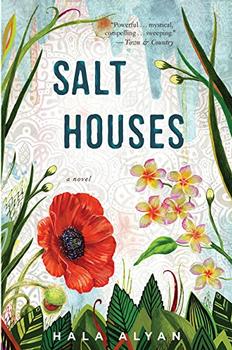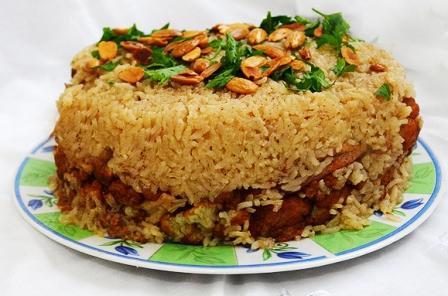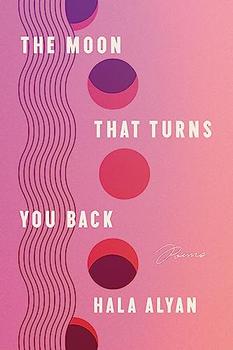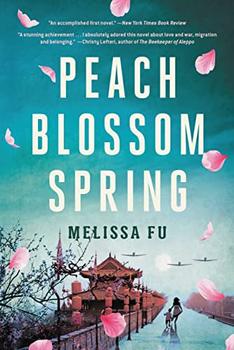Summary | Excerpt | Reading Guide | Discuss | Reviews | Beyond the book | Read-Alikes | Genres & Themes | Author Bio

From a dazzling new literary voice, a debut novel about a Palestinian family caught between present and past, between displacement and home.
On the eve of her daughter Alia's wedding, Salma reads the girl's future in a cup of coffee dregs. She sees an unsettled life for Alia and her children; she also sees travel, and luck. While she chooses to keep her predictions to herself that day, they will all soon come to pass when the family is uprooted in the wake of the Six-Day War of 1967.
Salma is forced to leave her home in Nablus; Alia's brother gets pulled into a politically militarized world he can't escape; and Alia and her gentle-spirited husband move to Kuwait City, where they reluctantly build a life with their three children. When Saddam Hussein invades Kuwait in 1990, Alia and her family once again lose their home, their land, and their story as they know it, scattering to Beirut, Paris, Boston, and beyond. Soon Alia's children begin families of their own, once again navigating the burdens (and blessings) of assimilation in foreign cities.
Lyrical and heartbreaking, Salt Houses is a remarkable debut novel that challenges and humanizes an age-old conflict we might think we understand - one that asks us to confront that most devastating of all truths: you can't go home again.
SALMA
Nablus
March 1963
When Salma peers into her daughter's coffee cup, she knows instantly she must lie. Alia has left a smudge of coral lipstick on the rim. The cup is ivory, intricate spirals and whorls painted on the exterior in blue, a thin crack snaking down one side. The cup belongs to a newer set, bought here in Nablus when Salma and her husband, Hussam, arrived nearly fifteen years ago. It was the first thing she'd bought, walking through the marketplace in an unfamiliar city.
In a stall draped with camelhair coats and rugs, Salma spotted the coffee set, twelve cups stacked next to an ibrik with a slender spout. They rested upon a silver tray. It was the tray that gave Salma pause, the triangular pattern so similar to the one her own mother gave her when she first wed. But it was gone, the old tray and coffee set, along with so many of their belongings, the dresses and walnut furniture and Hussam's books. All left behind in that villa, painted the color ...
What are some books you loved reading in 2024?
These were my favorites this year All the Colors of the Dark by Chris Whitaker James by Percival Everett The Women by Kirstin Hannah clear by Cary's Davies Masquerade by O.O. Sangoyomi Salt House ms by Hala Alyan Indian Burial Ground by Nick Medina The Lion Women of Tehran Marjam Kamala Camp Zero...
-Jo_S
Here are some of the comments posted about Salt Houses in our legacy forum.
You can see the full discussion here.
Alia thinks to herself that "nostalgia is an affliction." What do you think she meant by that? Do you agree or disagree, and why?
I think she felt that nostalgia for a physical home at least inhibited the ability to make a new one with those she loved. It also was painful for her and so better to suppress than suffer. - vickic
Did you find Alia, Atef and Salma's secret preference for one of their children a realistic portrayal of how parents feel about their children--and do you understand why each of these parents favored the particular child they did?
I think this special feeling varies over time. At one time or another a parent feels more on the same wavelength with one or another child or grandchild. But usually over the course of a lifetime, it evens out if the parent is aware of this and ... - audrey1
Do you agree the author missed an opportunity to provide the reader with a more realistic picture of their lives?
I agree with acstrine, based on media coverage our understanding of Palestinians is either as refugees or terrorists. The author has given us another perspective, one more in line pehaps with our own social standings. I found this very realistic ... - scgirl
Do you agree with Atef's interpretation of a life? If not, what is yours?
I agree that those we love cannot save us, but loving others can. It is our reaching out and making connections with those around us that gives meaning to our lives. Atef's life is defined by the love he felt for his friend Mustafá, his wife and ... - janeto
Do you think Atef prefers to be an observer of life rather than a participant? How does his approach to life differ from that of his wife?
The last time Atef was a "participant", he goaded his best friend and the brother of his wife into staying to participate in the Six Day War. He then "gave up" his brother-in-law, who died as a result. In addition to feeling guilty, perhaps, Atef ... - acstrine
Readers travel through each section of the narrative – from country to country – with a different family member. The story jumps forward in time, often skipping years, to coincide with significant events, both historical and familial, which keeps the storytelling compelling and intriguing. In this way, writer Hana Alyan creates a unique perspective of the effect of political conflict on families. Rather than bringing readers to the brutality of war, we bear witness to the separation of a family from its roots, placing us inside the heart of one particular family...continued
Full Review
(795 words)
This review is available to non-members for a limited time. For full access,
become a member today.
(Reviewed by Claire McAlpine).
 Aline Ohanesian, author of Orhan's Inheritance
Reading Salt Houses is like having your coffee grounds read: cosmic, foreboding and titillating all at once. In this magnificent debut, Alyan's powerful and poetic voice guides us into the dark recesses of history and leads us right up to the present tensions between East & West, the modern & ancestral, the hopeless and the hopeful.
Aline Ohanesian, author of Orhan's Inheritance
Reading Salt Houses is like having your coffee grounds read: cosmic, foreboding and titillating all at once. In this magnificent debut, Alyan's powerful and poetic voice guides us into the dark recesses of history and leads us right up to the present tensions between East & West, the modern & ancestral, the hopeless and the hopeful. Cristina García, author of King of Cuba and others
Powerful, lyrical, and deftly layered with multiple voices, Hala Alyan has done the near impossible: illuminated a half-century of wrenching history with great intimacy.
Cristina García, author of King of Cuba and others
Powerful, lyrical, and deftly layered with multiple voices, Hala Alyan has done the near impossible: illuminated a half-century of wrenching history with great intimacy. Mira Jacob, author of The Sleepwalkers' Guide to Dancing
Hala Alyan's Salt Houses flies like a searchlight between history and fiction, unearthing the life of a single displaced Palestinian family among the rubble and illuminating it so deeply, so brilliantly, we cannot help but connect the story's richly imagined past to our very real present.
Mira Jacob, author of The Sleepwalkers' Guide to Dancing
Hala Alyan's Salt Houses flies like a searchlight between history and fiction, unearthing the life of a single displaced Palestinian family among the rubble and illuminating it so deeply, so brilliantly, we cannot help but connect the story's richly imagined past to our very real present. Ru Freeman, author of On Sal Mal Lane
This is a book with the power to both break and mend your heart.
Ru Freeman, author of On Sal Mal Lane
This is a book with the power to both break and mend your heart. War and political divisions are not the only reasons for people living in exile from their families, but they are often why people must leave in haste and abandon everything behind them. Sometimes homes are destroyed by war or, as with Alia's parents in Hala Alyan's novel Salt Houses, they are occupied following invasion. What can these people take with them even as they are forced to leave all tangible things behind? One thing is the memory of their favorite dishes and, wherever they make their home, they do what they can to reconstruct the classic dishes of their culture, and of their family tradition. Grandmothers and mothers hand down recipes to their daughters, who participate in the rituals and preparations of these ...
War and political divisions are not the only reasons for people living in exile from their families, but they are often why people must leave in haste and abandon everything behind them. Sometimes homes are destroyed by war or, as with Alia's parents in Hala Alyan's novel Salt Houses, they are occupied following invasion. What can these people take with them even as they are forced to leave all tangible things behind? One thing is the memory of their favorite dishes and, wherever they make their home, they do what they can to reconstruct the classic dishes of their culture, and of their family tradition. Grandmothers and mothers hand down recipes to their daughters, who participate in the rituals and preparations of these ...
This "beyond the book" feature is available to non-members for a limited time. Join today for full access.

If you liked Salt Houses, try these:

by Hala Alyan
Published 2024
From the author of The Arsonists' City and The Twenty-Ninth Year, a new collection of poetry that traces the fragmentation of memory, archive, and family–past, present, future–in the face of displacement and war.

by Melissa Fu
Published 2023
A "beautifully rendered" novel about war, migration, and the power of telling our stories, Peach Blossom Spring follows three generations of a Chinese family on their search for a place to call home (Georgia Hunter, New York Times bestselling author of We Were the Lucky Ones).




Read the best books first, or you may not have a chance to read them at all.
Click Here to find out who said this, as well as discovering other famous literary quotes!